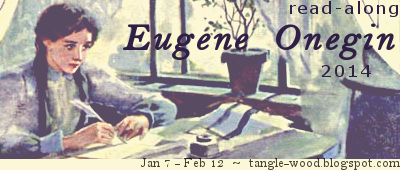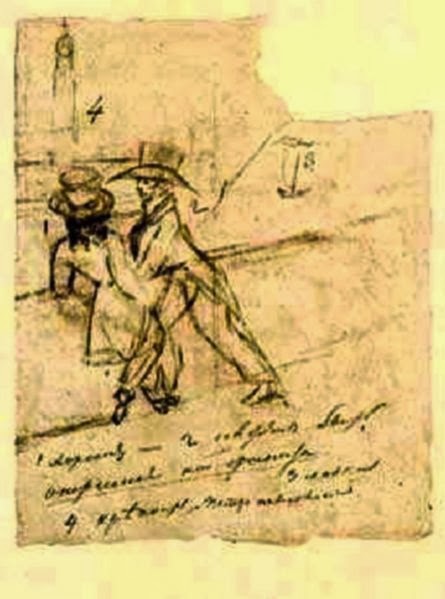 “My uncle, man of firm convictions …
“My uncle, man of firm convictions …
By falling gravely ill, he’s won
A due respect for his afflictions —
The only clever thing he’s done.
I was so happy to get the chance to participate in Marian at Tanglewood’s Read-Along for my second read of Eugene Onegin in six months. My first time I read the translation by Charles Johnston and this time chose to read James A. Falen’s translation. But more comparisons on the two later.
It was such a joy to read such a lively and often tongue-in-cheek poem, yet Pushkin weaves his jaunty remarks throughout a tale of serious love, serious death and serious coming-of-age, crafting a remarkable masterpiece.
Since I already reviewed Eugene Onegin the first time I read it, I will simply cover a couple of areas that stood out for me from a second read, that were not initially apparent.
 |
| First Edition of the novel (source Wikipedia) |
Comparing the two translations, I must say I enjoyed Falen more than Johnston. Johnston’s words have a loftier tone and are perhaps more beautiful, but I think Falen captures the spirit of the poem more accurately. A couple of times, his choice of words appeared awkward, yet he communicated the grave situations in balance with the bouncy, cheekiness of the narrator, with flair and apparent ease. I would recommend him for a first-time reader.
This second read I noticed numerous instances of juxtaposition ………. Tatyana reading books that lead her to form a romantic infatuation with a man she’s barely spoken to vs. Tatyana reading books that lead her to a more mature and formed view of Onegin’s character; Tatyana’s love of the country and woods vs. her marital residence being in the city; Tatyana’s letter vs. Onegin’s letter; Onegin’s rejection of Tatyana, and then Tatyana’s rejection of Onegin; Onegin’s volatile response to a friend’s challenge that leads to that friend’s death vs. Onegin’s wish to seduce a friend’s wife which could have led to a similar circumstance. It really became apparent to me this time that Onegin hadn’t learned anything. It was clear to Tatyana, too. She asks him pointedly, why he is suddenly pursuing her, and her harsh words demonstrate her mistrust of his motives:
” Why mark me out for your attention?
Is it perhaps my new ascension
To circles that you find more swank;
Or that I now have wealth and rank;
Or that my husband, maimed in battle,
Is held in high esteem at Court?
Or would my fall perhaps be sport,
A cause for all the monde to tattle —
Which might in turn bring you some claim
To social scandal’s kind of fame?”
Until he saw Tatyana the second time, he was the same foppish young man, sinking in ennui. She revived him briefly, yet even in the ardent fog of love, his actions are not the actions of a man who has gone through a self-examination from the tragedy that had come from his initial conduct (the duel). If he had managed to convince Tatyana to begin a relationship with him, it would have ended in another duel and another possible death of a friend. I think Tatyana was wise enough to ascertain the baseness of his behaviour and foresaw the consequences. She loved him as a man, yet rejected his ignoble character.
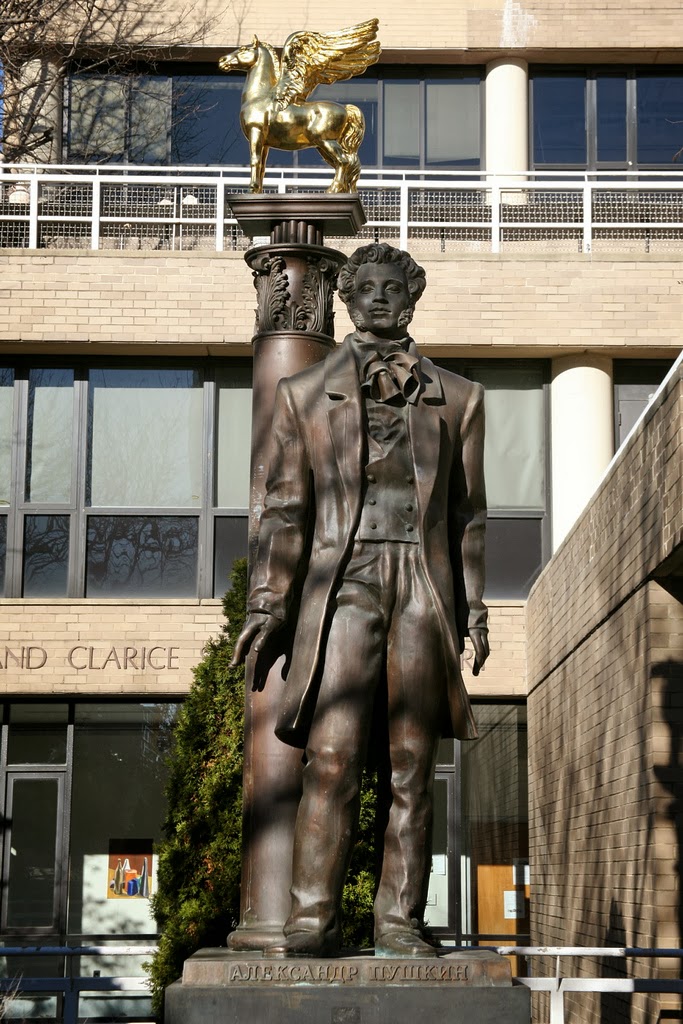 |
| Statue of Alexander Pushkin photo courtesy of Cliff (Flickr) Creative Commons License |
This quote by Onegin sums up his character throughout the poem:
“Yet I in futile dullness squander
These days allotted me by fate …..”
There is a pathos in his words and actions with which the reader can sympathize, hoping for a reversal in his chosen path, but at the end he is still walking the road of self-gratification and boredom, and we can only watch him disappear into the thickening mist …..

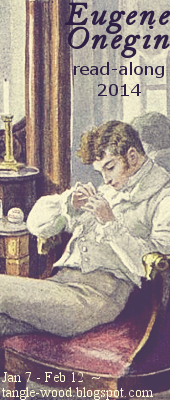
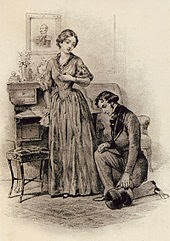

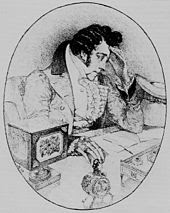.jpg)
